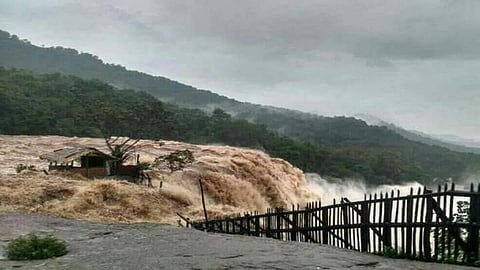

Climate change is disrupting the world’s water cycle with more extreme droughts and floods and water stress, according to the Intergovernmental Panel on Climate Change (IPCC) in its sixth assessment report on climate science.
Integrated water and climate action must be prioritised, said the World Meteorological Organization (WMO) and other members of the Water and Climate Coalition in an urgent call to governments.
The appeal to world leaders was made days before the 26th Conference of Parties (CoP26) to the United Nations Framework Convention on Climate Change (UNFCCC). The letter said:
Changing precipitation patterns are already impacting agriculture and the food system, making livelihoods, ecosystems and diversity increasingly vulnerable,” the letter alerted.
Rising sea levels threaten communities, infrastructure, coastal environments and aquifers, the group noted.
On the other hand, over a third of the world’s children (920 million) are currently severely exposed to water scarcity, the letter said citing the UNICEF report.
“Water is the ‘climate connector’ that allows for greater collaboration and coordination across the majority of targets for climate change (Paris Agreement), sustainable development (2030 Agenda and its SDGs) and disaster risk reduction (Sendai Framework), stated the UN World Water development Report 2020.
In their letter, they emphasised on information systems to improve storage and distribution of water. Information-driven early-warning systems can help communities be better prepared and more resilient in the face of droughts, floods and water quality challenges, said their letter.
They insisted on access to timely warnings by people about water-related disasters to help save lives and protect livelihoods by strengthening the political agenda for recognising disaster risk warnings as a global public good.
This should be included by them in their present and future Nationally Determined Contributions (NDC), said the letter.
World leaders participating in CoP26 need to focus on integrating data and projections on climate as well as water risks for designing resilient infrastructure. This includes water and sanitation services, especially for the most vulnerable, said WMO and FAO along with other eight leading organisations.
Water and Climate Coalition was launched in March 2021. It aims to provide strategic guidance on integrating the water and climate agendas, ensuring effective climate action for adaptation and resilience. Maximising synergies will help achieve UN-mandated Sustainable Development Goals for water and sanitation (SDG6) and that for climate (SDG13), the group said.
The leaders of the global coalition will be participating in the COP26 to highlight urgency of the water and development challenges linked to climate change.
Natural water storage in ice and snow is decreasing, according to recent reports. Terrestrial water storage dropped at a rate of one centimetre per year in 20 years (2002-2021), according to the 2021 State of Climate Services.
India recorded the highest loss in terrestrial water storage, WMO’s assessment released in the first week of October 2021, showed.
Water quality and flow patterns have also been affected. This has affected the quality of both surface and groundwater.
Urgent actions are needed to ensure availability and sustainable management of water and sanitation for all said members of the coalition that include: the Food and Agriculture Organization of the United Nations, the UN Educational, Scientific and Cultural Organization, the World Health Organization (WHO), the International Fund for Agricultural Development, the UN Environment Programme, the UN Children’s Fund, the UN University, the UN Economic Commission for Europe and the Global Water Partnership.
The governments must address more effectively the water dimensions of climate change adaptation and mitigation, as provided for in the SDG6 Global Acceleration Framework for swift progress towards SDG6, the letter said.
The concerns addressed in their letter contributes to the global framework that is part of the UN Secretary-General’s Decade of Action to deliver the SDGs by 2030.